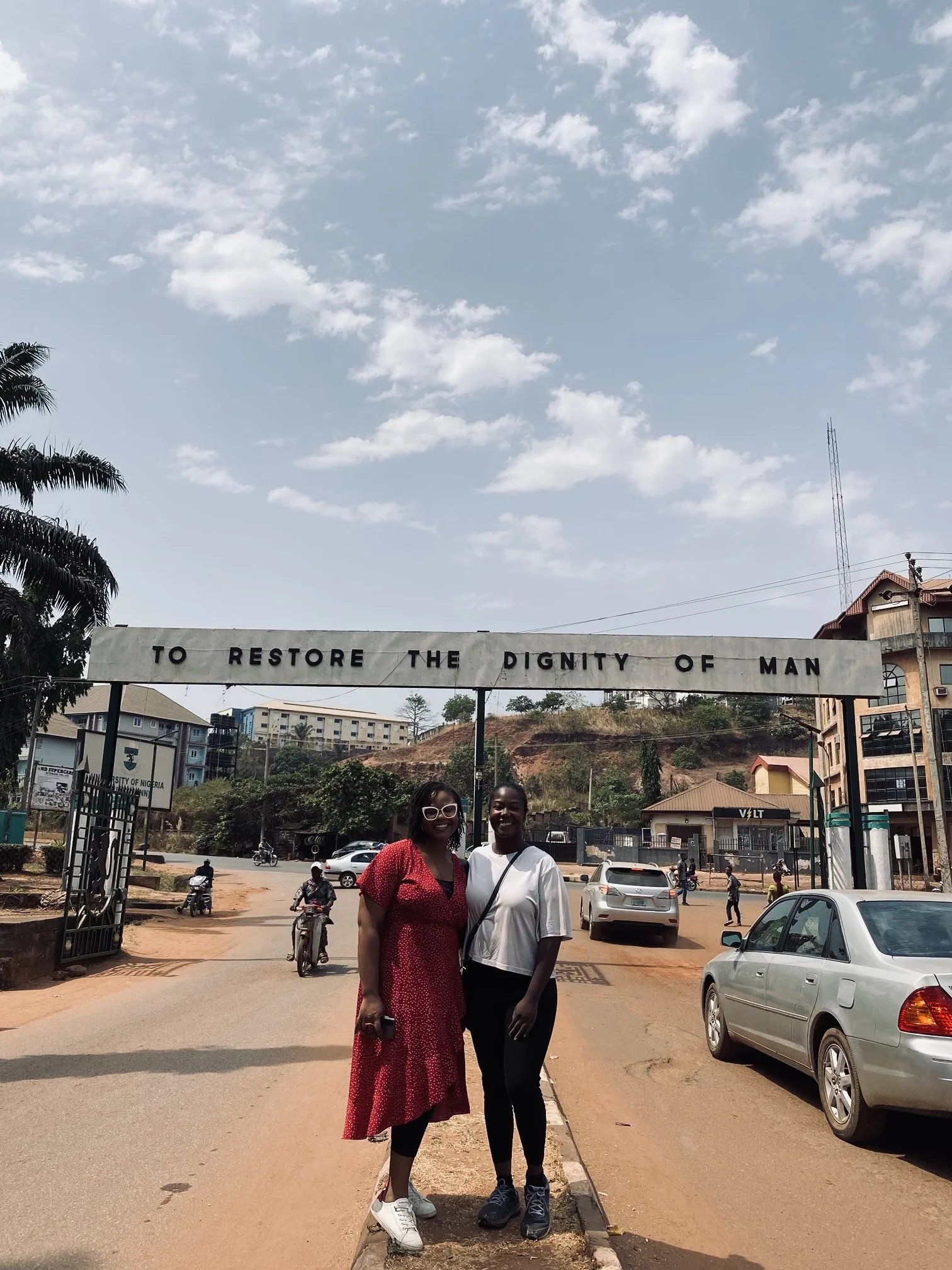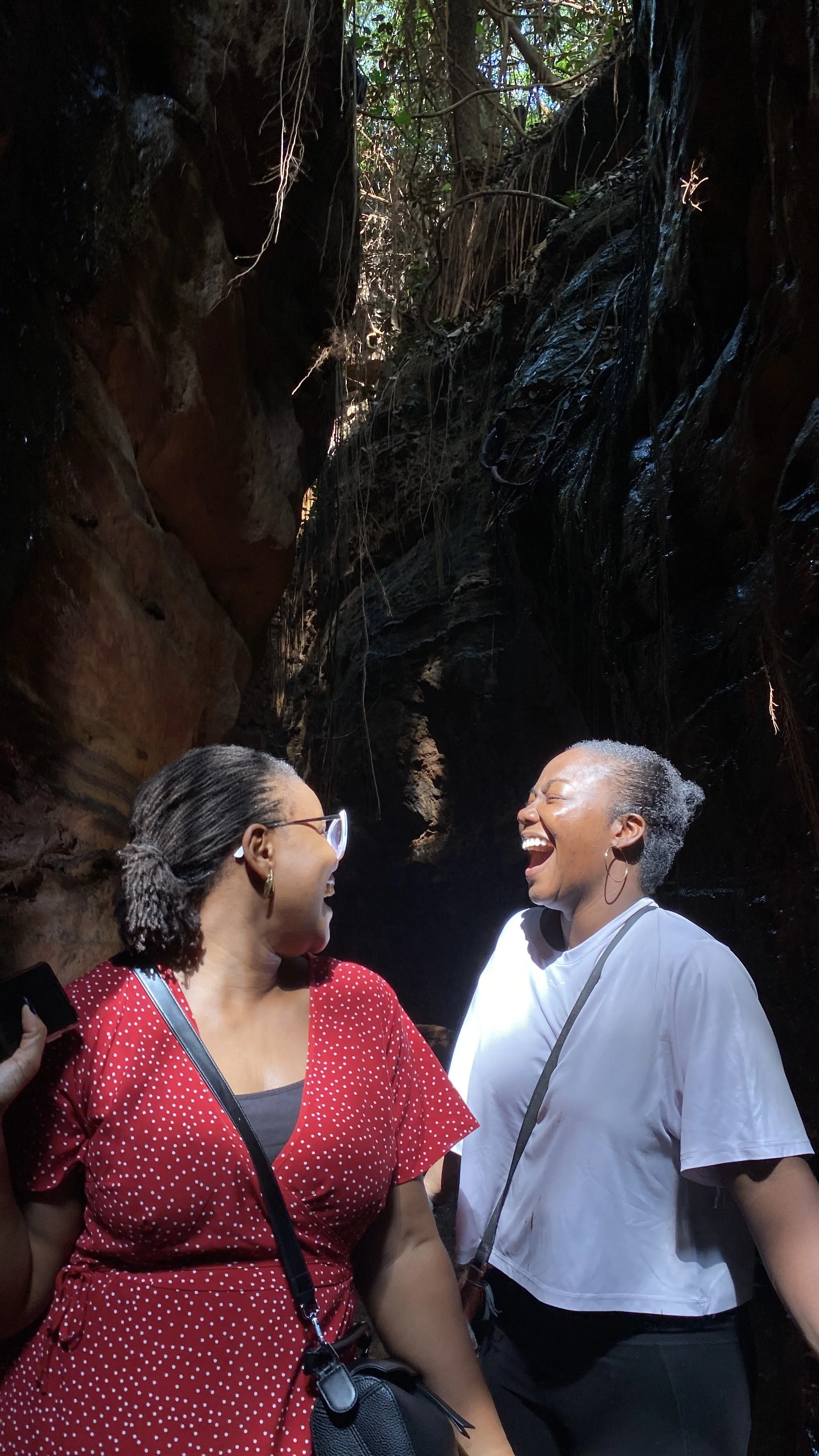48 Hours in Enugu
Hills, Waterfalls, and the Art of Vibes
There’s something special about traveling just for the vibes. No weddings, no work obligations, no family visits—just pure, unfiltered exploration. That’s exactly how I ended up in Enugu, the heart of southeastern Nigeria, for a three-night, two-day adventure packed with food, history, and a good amount of hiking.
Dining at Anne’s Enugu & the Uber Hustle
We landed in Enugu in the evening and wasted no time heading to Ann’s Enugu for dinner. The place was beautiful—an upscale, well-decorated restaurant with cozy lighting and a warm ambiance that promised an amazing dining experience. The food? Delicious. The service? Horrendous.
We waited almost an hour for our food and then nearly as long for the bill. By the time we left, I wasn’t sure if I was full or just exhausted from the waiting. Still, it was a solid first impression of Enugu’s food scene.
Sidebar: Ubers and Bolts in Enugu are a scam. The app shows a price, but the second you confirm the ride, the driver calls to "discuss" the actual fare, which is usually three to four times higher than what’s displayed. Every driver had an excuse—fuel prices, low app rates, “this is not Lagos”. Thankfully, we found one reasonable driver who then also agreed to be our ride for the next day.
Coffee, Culture & Hills on Hills
We started the day at Café One, a chain of cafés and coworking spaces in Nigeria. The warm welcome and aesthetically pleasing decor made for a great start, though we quickly learned that WiFi isn’t free here (noted). I got an iced mocha that was perfection, and we sampled a few pastries.
Sidebar: Glo is the worst phone network in Enugu. We asked someone which network was best, and the response was "There is no best, but Glo is the worst." Lesson learned.
Driving around Enugu was smooth, with lots of roundabouts with historical and cultural statues. From historical figures to cultural symbols, every major roundabout seemed to have something worth explaining, and our driver was happy to oblige.
Our first real stop was the National Museum of Unity, which turned out to be a highlight. Having just visited the Ibadan Unity Museum, I appreciated how the layout was similar, but Enugu’s museum of course went deeper into Igbo culture and history. Our guide was fantastic—engaging, knowledgeable, and passionate—and we left understanding so much more about colonial Enugu, coal mining, and Igbo traditions.
Oddly enough, there was no real mention of Biafra in the museum —just a small section with old currency notes. Given that Enugu was the capital of Biafra, this felt like a major omission. Still, we got a major history lesson in one sentence: "Enugu built Port Harcourt." referring to the discovery of coal in Enugu in 1909, which led to the construction of Port Harcourt in 1912 as a dedicated export hub for the coal industry.
For lunch, we headed to The Village Bistro, a brightly decorated restaurant with wooden menus and traditional decor. I tried Abacha for the first time (paired, of course, with Orijin—my drink of choice this whole trip). Abacha was...different. It tasted good, but maybe because it wasn’t hot, my system didn’t quite acknowledge it as a full meal.
Next up was Nike Lake Resort (which by the way, is definitely not pronounced like Yoruba name—thank you, Mr. Kelechi, for setting me straight). Peaceful, calming, and scenic, it was the perfect place to unwind. There were birds, a quiet breeze, and that stillness that makes you want to sit and reflect.
We ended the day at Polo Park Mall, intending to watch a movie, but somehow we just ended up with popcorn and ice cream instead. No regrets.
Waterfalls, Nsukka & Enugu’s Kigali Vibes
We started early at Kitchen Pastries, fueling up on coffee and pastries before meeting up with Tour Buddy (aka Emmanuel), our guide for the day. Emmanuel was an absolute gem of a guide—engaging, witty, and incredibly knowledgeable about the city’s history and hidden gems. He had a way of weaving stories into every stop, making even the smallest details feel significant and bringing the city to life. His kindness and flexibility stood out—whether it was adjusting plans on the fly, lending his shoes to trek when ours got wet, or sharing fun local anecdotes that had us laughing the entire trip. Traveling with him felt like exploring a new city with an old friend, and his passion for showcasing Enugu made the experience all the more special.
Our first stop was Iyi Nzu Falls—a place so hidden that there were no signs. Emmanuel somehow just knew where to tell the driver to stop (by a random church), and then we hiked down for about 15 minutes. The waterfall itself wasn’t huge like Victoria Falls or Gurara Falls, but it was stunning—enclosed within rock walls, cool and inviting. Oh, and there was a chicken there. We weren’t sure if it was a sacrifice or just a fellow tourist, but I’m going with the latter.
From there, we made an unplanned detour to Nsukka, home to the renowned University of Nigeria, Nsukka (UNN)—a place I’d heard about my whole life, thanks to literary giants like Chimamanda Ngozi Adichie and Chinua Achebe who walked its halls. Driving through, it felt like a classic university town—tree-lined roads, clusters of students walking to and from classes, a quiet, studious atmosphere. The library, unfortunately, looked sadly dilapidated, a stark reminder of the challenges in maintaining educational institutions. But then there was the white administrative building, standing out with its clean, striking architecture—definitely an impression-maker. It was surreal to finally see Nsukka in person, a place so deeply intertwined with Nigeria’s literary and academic legacy.
The drive back to Enugu city was smooth but filled with police and military checkpoints. Our driver, unbothered, told them we were coming "from school" (technically true since we’d just been to Nsukka University). When I asked what he would say if we were too old to be students, he smirked and said, "Na from farm now." The man had backup excuses for days.
Lunch was another round of Abacha—this time with fish. Still not my thing, but at this point, I was committed to trying it properly. No toilets, though, so bush toilet it was (though more like concrete jungle toilet?). Enough said.
We wrapped up the trip with a visit to Milken Hill—which, at the top, felt like Kigali. The hills stretched out in all directions, and the city seemed to breathe beneath us.
Final stop: Ngwo Pine Forest & Waterfall. The man-made pine forest was gorgeous, and the walk downhill to the hidden cave and waterfall felt like stepping into a secret world. I caved (pun intended) and jumped under the waterfall for an impromptu shower—refreshing, exhilarating, and the best kind of goodbye to Enugu.
Dinner was steaming hot Ofe Nsala (white soup), loaded with meat, dried fish, and stockfish. A true love letter to my taste buds. Fun fact: As a Yoruba girl, my top two soups are Ogbono and White Soup, but Ewedu is a close third, so don’t revoke my Yoruba card just yet.
Why Visit Enugu?
The next morning, it was time to head to the airport, reflecting on an incredible, eye-opening trip. What made it special? The history. The landscapes. The people. The absolute privilege of being able to explore, just because.
Funny enough, several people asked us why we were in Enugu. They were so surprised when we said, “For the vibes.” But honestly, Nigeria has so many beautiful, underappreciated places worth visiting, and I can’t wait to explore more.
Shoutout to Tour Buddy Enugu for being an amazing guide and to Nikeh for the recommendations. Next time? We’re staying longer. Maybe even adding Obudu to the list.
Enugu: Would I Go Back?
Absolutely.








